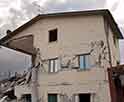The Increasing Trend of Global Forest Fires: Causes and Impacts
Worldwide Wildfires: Understanding the Growing Global Threat
Reading time: 1 minute, Discovery Chepe Id-730-ECO
Published on 05-30-2025

In recent years, the planet has witnessed a worrying surge in the frequency and intensity of wildfires. These blazes, once confined to dry seasons or remote forested areas, are now becoming year-round threats that affect both nature and humanity. From the Arctic Circle to the Amazon rainforest, no region seems immune.
Why Are Wildfires Increasing?
1- Climate Change: The number one driver behind the increase in wildfires is climate change. Rising global temperatures lead to drier landscapes, longer droughts, and more frequent heatwaves - the perfect fuel for fire. According to NASA Climate, these changes are creating "fire weather" conditions that didn't exist before.
2- Human Activity: Agriculture-related burning, illegal deforestation, and poorly managed land are also major contributors. A report by the World Resources Institute reveals that fire-related deforestation in tropical regions doubled in 2024 compared to the previous year.

A Planet Ablaze: The Global Perspective on Rising Wildfires
3- El Niño and Other Natural Patterns: Phenomena like El Niño alter rainfall and temperature patterns, worsening droughts and leading to more widespread fires, especially in Latin America and Southeast Asia.
Where Are the Worst Wildfires Happening?
The Amazon Rainforest
Often called the "lungs of the Earth", this region saw record-breaking fires in 2024. Over 3 million hectares of primary forest were lost in Brazil and Bolivia alone.
Canada
In 2023-2024, Canada's boreal forests burned on an unprecedented scale. Emissions from these fires were nine times higher than the national average, according to Copernicus Earth System Science Data.
Southern Europe
Countries like Greece, Portugal, and Italy are facing increasingly frequent summer wildfires, often forcing evacuations and damaging historical areas.
Australia and the US
These regions have long histories with wildfires, but recent decades have seen them intensify beyond traditional fire seasons.
The Consequences: More Than Just Trees Lost
a) Environmental Damage: Wildfires destroy biodiversity, accelerate desertification, and release enormous amounts of CO- into the atmosphere. This in turn fuels more warming - a vicious cycle.
b) Human Health: Smoke from wildfires contains fine particulate matter that penetrates deep into the lungs. According to PAHO, wildfire smoke is linked to respiratory, cardiovascular, and even neurological problems.
c) Economic Loss: From destroyed homes to damaged infrastructure and disrupted tourism, the cost of wildfires runs into billions annually.
d) Mental Health: Displacement, fear, and loss of community contribute to widespread emotional trauma in affected regions.
Can Anything Be Done?
1- Invest in Prevention: Controlled burns, land-use planning, and better monitoring systems can reduce the risk of catastrophic fires.
2- Strengthen Policy: Governments must implement stricter environmental protection laws and support indigenous fire management practices.
3- Address Climate Change: Long-term solutions lie in reducing global emissions and transitioning to cleaner energy sources. Every degree of warming avoided reduces fire risk.
4- Educate Communities: Teaching people how to live responsibly in fire-prone areas - from building fire-resistant homes to having evacuation plans - can save lives.
Final Thoughts
Wildfires are no longer just "natural disasters" - they are becoming predictable consequences of a warming, changing world. While nature may spark a flame, it is often human choices that let it grow. If we want to reverse this dangerous trend, the time to act is now.
For more resources, visit: UNEP Wildfire Report
Let''s not wait for the next inferno to demand change. The fire is already here.
See Also
Discovery Chepe
Most read...















